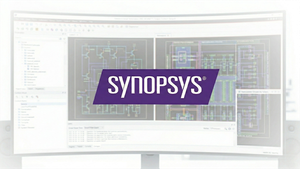Data to be presented will highlight latest preclinical safety data for PBGENE-HBV in preparation for regulatory filings in 2024
Precision BioSciences, Inc. (Nasdaq: DTIL), an advanced gene editing company utilizing its novel proprietary ARCUS® platform to develop in vivo gene editing therapies for sophisticated gene edits, including gene elimination, insertion, and excision, today announced that the company will present late-breaking preclinical data from its clinical candidate, PBGENE-HBV, for the treatment of chronic hepatitis B (HBV) during a poster presentation at the European Association for Study of the Liver (EASL) Congress 2024 being held June 5-8, 2024 in Milan, Italy.
“We look forward to the opportunity to share the latest new preclinical safety data from our PBGENE-HBV clinical candidate at the EASL Congress,” said Jeff Smith, Co-Founder and Chief Research Officer at Precision BioSciences. “The late-breaking safety data to be presented at EASL, combined with our recent pre-IND feedback from both U.S. and international Regulators, adds to the body of evidence supporting continued progression of PBGENE-HBV as we pursue the goal to be the first potentially curative gene editing program to enter the clinic for HBV. PBGENE-HBV is designed to safely eliminate cccDNA and inactivate integrated HBV DNA. As we look ahead, we remain on track to file an investigational new drug (IND) and/or clinical trial application (CTA) in 2024.”
Presentation Details:
Title: Preclinical safety data for PBGENE-HBV gene editing program supports advancement to clinical trials as a potentially curative treatment for chronic hepatitis B
Abstract Number: LB195
Presenter: Emily Harrison, Senior Scientist - Hepatitis Research Leader, Precision Biosciences
Date and Time: Wednesday, June 5, 2024, 8:30 AM – Saturday, June 8, 2024, 5:00 PM CEST
About Hepatitis B and PBGENE-HBV:
Hepatitis B is a leading cause of morbidity in the US and death globally, with no curative options currently available for patients. In 2019, despite the availability of approved antiviral therapies, an estimated 300 million people globally and more than 1 million people in the US were estimated to have chronic hepatitis B infection. An estimated 15% to 40% of patients with HBV infections may develop complications, such as cirrhosis, liver failure, or liver cancer (hepatocellular carcinoma), which account for the majority of HBV-related deaths.
Chronic hepatitis B infection is primarily driven by persistence of HBV cccDNA and integration of HBV DNA into the human genome in liver cells, the primary source of HBsAg in late-stage disease. Current treatments for patients with HBV infection include agents that result in long-term viral suppression as indicated by reduction of circulating HBV DNA, but these therapies do not eradicate HBV cccDNA, rarely lead to functional cure, and require lifelong administration. PBGENE-HBV is a highly specific, novel therapeutic approach to treating patients with chronic HBV infection. It’s designed to directly eliminate cccDNA and inactivate integrated HBV DNA with high specificity, potentially leading to functional cures.
About Precision BioSciences, Inc.
Precision BioSciences, Inc. is an advanced gene editing company dedicated to improving life (DTIL) with its novel and proprietary ARCUS® genome editing platform that differs from other technologies in the way it cuts, its smaller size, and its simpler structure. Key capabilities and differentiating characteristics may enable ARCUS nucleases to drive more intended, defined therapeutic outcomes. Using ARCUS, the Company’s pipeline is comprised of in vivo gene editing candidates designed to deliver lasting cures for the broadest range of genetic and infectious diseases where no adequate treatments exist. For more information about Precision BioSciences, please visit www.precisionbiosciences.com.
The ARCUS® platform is being used to develop in vivo gene editing therapies for sophisticated gene edits, including gene insertion (inserting DNA into gene to cause expression/add function), elimination (removing a genome e.g. viral DNA or mutant mitochondrial DNA), and excision (removing a large portion of a defective gene by delivering two ARCUS nucleases in a single AAV).
View source version on businesswire.com: https://www.businesswire.com/news/home/20240501949627/en/
Contacts
Investor and Media Contact:
Naresh Tanna
Vice President of Investor Relations
naresh.tanna@precisionbiosciences.com




